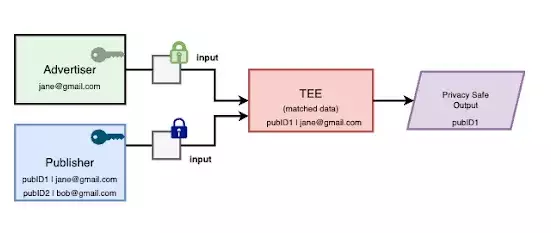In an era where consumer privacy is paramount, Google is taking innovative strides to reconcile effective ad targeting with stringent data protection standards. The tech giant is now rolling out a process known as “confidential matching” in Google Ads, which aims to create a safer environment for businesses and their customers by utilizing both Google’s insights and businesses’ first-party data. This collaborative approach seeks to enhance audience targeting while maintaining robust privacy protocols—an increasingly vital necessity in today’s digital landscape.
Confidential matching leverages technology known as Trusted Execution Environments (TEEs) to facilitate the secure amalgamation of data inputs from businesses and Google. Unlike traditional methods where data is often shared unencrypted, the TEEs operate by encrypting both sets of data, ensuring that sensitive information remains confidential. This innovative mechanism not only prevents unauthorized access but also protects against potential misuse by those with administrative privileges within the system. Google assures users that this level of security makes it virtually impossible for either data set to be accessed or manipulated outside this secure environment, effectively mitigating risks associated with data breaches.
Google’s commitment to refining its data sharing processes is not new. Over the last few years, the company has attempted to phase out cookie tracking in its Chrome browser, a move initially intended for implementation by 2022. However, various regulatory and industry obstacles led Google to delay and ultimately abandon this approach, acknowledging the need for a more evolved system. The introduction of confidential matching represents a pivot from blanket solutions to tailored alternatives, as Google continues to seek methods that accommodate various stakeholder interests while focusing on consumer privacy.
One significant aspect of confidential matching is its potential to ease tensions between advertisers and consumers regarding data handling practices. By establishing this encrypted method of data connection, Google not only reassures advertisers with stringent privacy policies but also grants them the autonomy to encrypt data before it exits their servers. This capability is poised to enhance the trust between advertisers and consumers, as privacy concerns become a primary issue for many users navigating a data-driven world.
While the technicalities of confidential matching may seem daunting to the average marketer, the implications of such technology could be transformative. By providing a more secure and privacy-centric approach to ad targeting, businesses can expect improvements in audience engagement without compromising on ethical data usage. This evolution in data policy reflects a larger trend in digital marketing, where transparency and consumer trust are becoming central pillars of brand strategy.
Google’s introduction of confidential matching signals a significant advancement in the ongoing quest to balance effective advertising with consumer privacy. As businesses adapt to these changes, the focus will increasingly shift towards leveraging secure data practices, which could ultimately lead to more meaningful interactions between brands and their audiences. In a rapidly changing digital landscape, such innovations are not just beneficial—they are essential for fostering a sustainable, trust-based relationship between businesses and consumers.


Leave a Reply